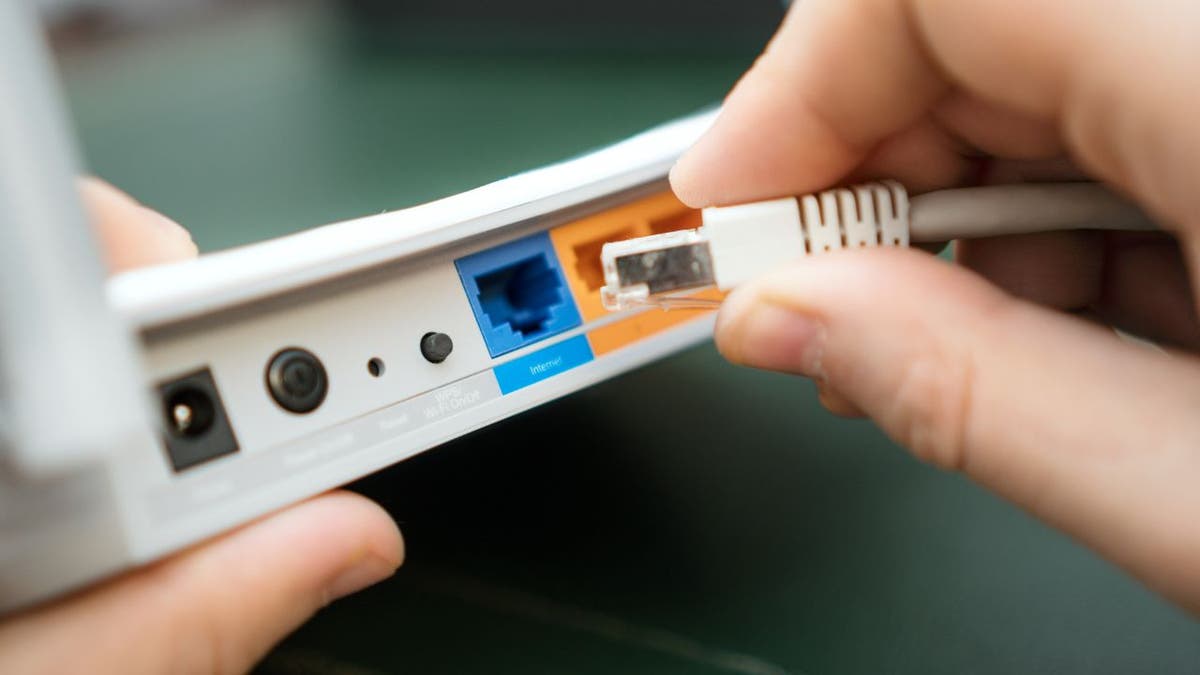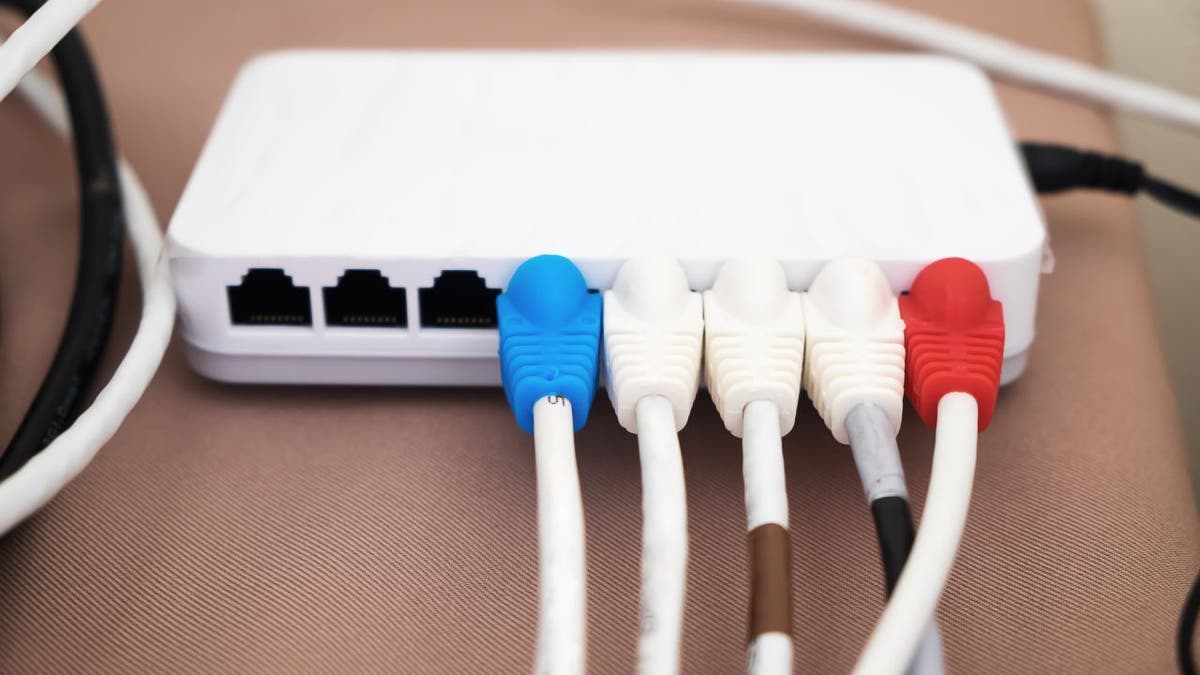Most people assume their home Wi-Fi is secure.
If it has a password, it must be safe. Right? Unfortunately, that confidence is often misplaced. As remote work becomes more common and smart devices flood our homes, the reliability and security of our home networks matter more than ever.
Every smart speaker, connected light bulb and video call adds to the load. Yet, most of us rarely check if our network is properly protected.
Hackers can target unsecured devices. Internet service providers are quietly watching your online habits. Many of your devices may be leaking unencrypted data without you even realizing it. Even websites that use HTTPS don’t fully protect your privacy. Your ISP can still see which domains you visit. It’s time to question just how safe your home setup really is.
16 BILLION PASSWORDS LEAKED IN MASSIVE DATA BREACH

A person unplugging a router. (Kurt "CyberGuy" Knutsson)
The illusion of home network security
Most people believe that a Wi-Fi password is enough to protect their home network. But that’s far from the full story. In reality, many home routers are vulnerable right out of the box.
For example:
- Outdated firmware is common and often never updated.
- Weak encryption like WPA2 is still widely used despite growing vulnerabilities.
- Default passwords are sometimes never changed and are easy for attackers to guess.
A recent real-world case uncovered by GreyNoise researchers proves how serious these weaknesses can be. Security researchers uncovered a botnet called “AyySSHush” that compromised more than 9,000 ASUS routers and also targeted models from Cisco, D-Link and Linksys. The attack exploited:
- Brute-forced login credentials.
- Outdated security settings.
- Long-known firmware vulnerabilities.
The campaign was sophisticated enough that experts suspect a nation-state was behind it.
WHAT IS ARTIFICIAL INTELLIGENCE (AI)?
It’s not just routers that are at risk. Smart home devices like cameras, doorbells and plugs are often forgotten once installed:
- Many never receive software updates.
- They’re rarely tested for security before going to market.
- If connected to the same network as your main devices, they can serve as an easy entry point for hackers.
- Even guest Wi-Fi networks can be risky if not properly isolated or password-protected.
Beyond that, your internet provider can track your activity, even on encrypted HTTPS sites. ISPs know which domains you visit and often use that data to build advertising profiles or sell it to third parties.
And it doesn’t take advanced tools to eavesdrop. Cheap Wi-Fi sniffers can intercept unencrypted traffic from nearby, while more sophisticated attacks can reroute your traffic entirely without you realizing it.
What you can do right now
To reduce your exposure, take these steps:
- Enable WPA3 encryption if your router supports it.
- Update your router’s firmware and change any default passwords.
- Use separate networks for smart devices and guests.
- Turn on your router’s firewall, if available.
- Switch to a secure DNS provider like Cloudflare to block malicious domains before they load.
These simple changes can go a long way toward turning the illusion of Wi-Fi security into the real thing.

A router on a table. (Kurt "CyberGuy" Knutsson)
Why antivirus and firewalls are not enough
Antivirus software is useful for blocking known threats and keeping malware off your devices. Firewalls help manage incoming and outgoing connections. However, neither of these tools protects your connection to the internet itself.
GET FOX BUSINESS ON THE GO BY CLICKING HERE
A type of attack known as DNS hijacking can reroute your traffic to fake websites even if your device has antivirus protection. On public Wi-Fi, your data can be intercepted if it is not encrypted. Your internet provider can still see everything you do online unless your traffic is hidden. These tools protect your device, but they do not protect your connection. That leaves a big gap in your defenses. Security should start from the moment your data leaves your device.

Illustration of a hacker at work. (Kurt "CyberGuy" Knutsson)
What a VPN actually does and why you need one
A Virtual Private Network (VPN) solves that connection problem. It creates a private, encrypted tunnel between your device and the websites or apps you use. Everything that travels through that tunnel is hidden from outsiders – even your internet provider.
With a VPN:
- Your IP address is masked, keeping your location private.
- Your data is encrypted, making it unreadable if intercepted.
- You can avoid ISP tracking and access region-restricted content.
- It’s especially useful on public Wi-Fi, but valuable at home too.
That said, VPNs aren’t magic. They won’t stop phishing scams or block all malware. You still need a strong antivirus and smart digital habits.
Get my picks for the best 2025 antivirus protection winners for your Windows, Mac, Android and iOS devices at CyberGuy.com/LockUpYourTech.
But when it comes to keeping your internet activity private and your connection secure, a VPN fills the gap that antivirus and firewalls leave wide open.
Choosing the right VPN
Not every VPN offers the same level of security or privacy. Free VPNs might log your activity or sell your data. For true privacy, look for a VPN that does not keep logs, uses strong encryption, and offers high-speed servers. The VPN should support multiple devices under one account, and ideally, the company should be based in a country with strong privacy laws.
For the best VPN software, see my expert review of the best VPNs for browsing the web privately on your Windows, Mac, Android and iOS devices at Cyberguy.com/VPN.
CLICK HERE TO GET THE FOX NEWS APP
Kurt’s key takeaway
Your home Wi-Fi may seem secure, but appearances can be deceiving. Weak router settings, tracking by ISPs and smart devices with poor security all put your personal information at risk. Antivirus software and firewalls cannot fix all of these problems. A VPN offers a powerful layer of protection by encrypting your traffic, hiding your activity, and making your connection truly private. But remember, true digital security comes from layers, VPNs, antivirus, strong passwords, updated firmware and secure DNS, all play a role.
Should manufacturers be held accountable for keeping routers secure against cyber threats? Let us know by writing us at Cyberguy.com/Contact.
Sign up for my FREE CyberGuy Report
Get my best tech tips, urgent security alerts, and exclusive deals delivered straight to your inbox. Plus, you’ll get instant access to my Ultimate Scam Survival Guide – free when you join my CYBERGUY.COM/NEWSLETTER.
Copyright 2025 CyberGuy.com. All rights reserved.
